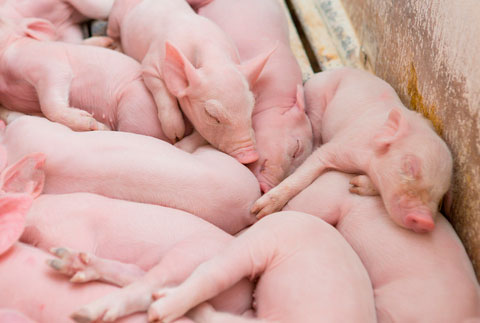NPPC Seeks Labor Solutions to Potential Impact of COVID-19 on Industry

The impact of Novel Coronavirus-2019 (COVID-19) on the already challenging labor shortage is a concern for the U.S. pork industry. In a letter to U.S. government officials on Tuesday, the National Pork Producers Council (NPPC) called for expedited solutions addressing the need for more workers on hog farms and in pork plants.

In the letter to President Donald Trump and other administration officials, members of Congress and state governors, NPPC detailed its concern that federal, state and local governments work together to develop a response to COVID-19 that protects public health and, whenever possible, supports animal care and minimizes disruptions to the U.S. pork production supply chain and consumers.
"Twenty years ago, the industry suffered from a plant-capacity shortage and the damage exacted on hog farmers was deep and lasting,” NPPC said in the letter. “The price of market hogs collapsed to almost zero. Many hog farmers lost everything. The industry became more consolidated. Without a solution to the labor shortage on farm and in plants, this scenario may play out again.”
NPPC also asked the administration to develop support plans for hog farmers if labor-related bottlenecks in the supply chain prevent hogs from being marketed.
"School closures preventing parents from going to work and caring for their animals are already a concern in farm and plant communities," NPPC President Howard "A.V." Roth, a hog farmer from Wauzeka, Wisc., said in a NPPC release. "The specter of market-ready hogs with nowhere to go is a nightmare for every pork producer in the nation. It would result in severe economic fallout in rural communities and a major animal welfare challenge."
NPPC clarified that its concerns regarding COVID-19 are labor specific–there is no evidence that pigs can contract the virus. Read more from coronavirus expert Linda Saif, Distinguished University Professor in the Food Animal Health Research Program at The Ohio State University.
“The U.S. pork industry relies on foreign labor and needs a stable workforce. Even without the additional challenge presented by COVID-19, the labor shortage threatens to increase production costs and food prices for consumers,” NPPC said. “Existing visa programs are designed for seasonal agriculture, and reform is needed to address the animal care and other requirements of year-round livestock agriculture.”
SOURCE: www.porkbusiness.com